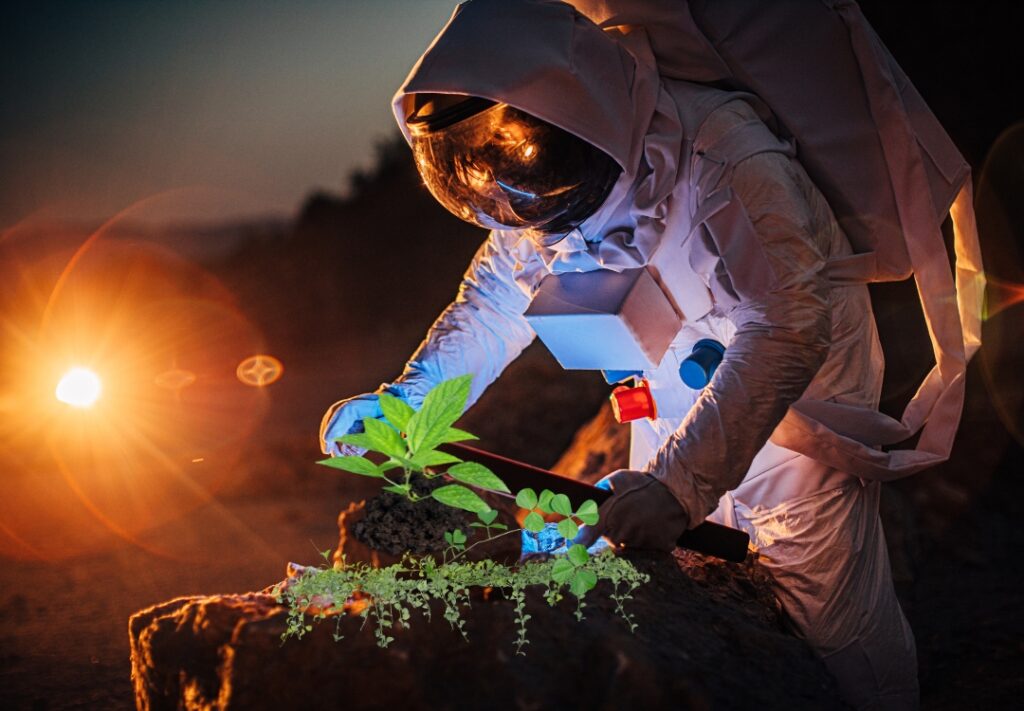How Agriculture Could Sustain Life on the Red Planet

Agriculture on Mars: A Future Possibility
The prospect of colonizing Mars has long captivated the imaginations of scientists and space exploration enthusiasts alike.
Among the key challenges that must be addressed in this endeavor is the question of sustaining life on the Red Planet, which includes, among other aspects, the production of food.
In this article, we will delve into the possibilities of agriculture on Mars, highlighting the challenges and technological advancements that could enable the cultivation of food on the planet.
We will discuss the Martian environmental conditions, the techniques that could be employed, and the future prospects for Martian agriculture.
Join us as we explore the innovative techniques and challenges that pioneers may face in their quest to sustain life on Mars through agriculture.
Challenges of Agriculture on Mars:
Cultivating food on Mars presents a unique set of challenges due to the planet’s harsh environment:
Atmosphere: The Martian atmosphere consists primarily of carbon dioxide, with low oxygen levels and low atmospheric pressure. This makes it difficult for plants to respire and for traditional agricultural techniques to function properly.
Temperature: Extreme temperatures on Mars, ranging from around -80°C to -20°C, can hinder plant growth.
Radiation: Mars lacks a strong magnetic field to protect its surface from solar radiation, which can damage plants.
Soil: Martian soil is deficient in essential plant nutrients and may contain toxic substances.
Water: Water availability on Mars is limited, although there is evidence of subsurface ice.
Technologies and Methods for Martian Agriculture:
Despite the challenges, several innovative technologies and methods are being developed to enable agriculture on Mars:
Hydroponics: Growing plants without soil, using a nutrient-rich solution, is a technique that can be applied in controlled environments on Mars.
Aeroponics: Similar to hydroponics, aeroponics involves cultivating plants in a nutrient-rich mist environment, saving water and space.
Synthetic Biology: Genetic manipulation can lead to plants that are more resistant to the Martian environment, optimizing growth under adverse conditions.
Resource Recovery: Recycling human and plant waste can provide nutrients for plants, creating a closed-loop system.
Environmental Control: Enclosed environments with controlled temperature, humidity, and light can help optimize growing conditions.
Available Resources on Mars:
There are some resources available on Mars that could be utilized for agriculture:
Water: Subsurface ice can be melted to provide water for irrigation and human consumption.
Carbon Dioxide: The CO2-rich Martian atmosphere can be used by plants for photosynthesis.
Soil: Martian soil can be treated to remove toxic substances and supplemented with nutrients to make it viable for cultivation.
Future Prospects for Martian Agriculture:
Martian agriculture is a rapidly evolving area of research with several promising prospects for the future:
Continued Exploration: Mars exploration missions will continue to study the planet and uncover new opportunities for agriculture.
International Collaborations: Partnerships between space agencies and private companies can accelerate the development of Martian agricultural technologies.
Scientific Innovation: Ongoing research in synthetic biology, robotics, and other fields can lead to novel solutions for Martian agriculture.
Testing in Simulated Environments: Research conducted in environments that simulate Martian conditions on Earth can provide valuable insights for future missions.
Conclusion:
To wrap up the “Agriculture on Mars: A Future Possibility” agenda, we can conclude that Martian agriculture is an exciting future possibility that could sustain human life on the planet.
Despite the significant challenges, technological advancements and innovative research have the potential to make Martian agriculture a reality.
If you are an enthusiast of space exploration, stay tuned to the innovations in this field and be inspired by the fascinating prospects that Martian agriculture may hold for the future of humanity.


